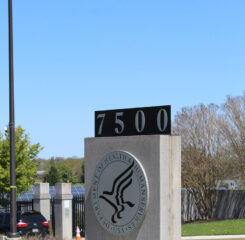Build Back Better Framework Includes Historic Workforce Allocations
The Build Back Better Act framework announced by the president would include historic allocations that address the workforce crisis that aging services providers are experiencing. The Administration has negotiated significant increases to address the immediate needs of long-term care organizations’ ability to address employee retention and provide wage increases for essential workers.
The bill makes new investments in direct care workforce recruitment and retention. There are also new proposals addressing the behavioral health care needs of caregivers and several new initiatives targeted to the recruitment for hospice palliative care nursing and physician training opportunities.
The following are a few highlights:
- $1.6 billion for Nursing Home Workforce Training Grants, from fiscal years 2023-2026, for all long-term care providers to address staffing shortages. Funds must be used for wage subsidies, tuition assistance, childcare and transportation assistance, and provided by state entitlement allocations.
- $150 billion Medicaid HCBS Expansion, which allows for a 6% increase in the Medicaid FMAP (and 2% increase during the first 6 quarters), if states agree to implement plans to strengthen and expand the HCBS workforce. Increases in HCBS rates are to be passed through to workers to improve compensation for direct care workers.
- $425 million to expand the Health Profession Opportunity Grants to reauthorize and expand these competitive grants that train low-income TANF recipients for high-demand jobs in the health care industry. Home care aides, CNAs, LPNs and nurses are trained through the program.
- $1 billion for Direct Care Workforce Competitive Grants, for the recruitment, training and retaining of direct care workers.
- $30 million for a Direct Care and Caregiving Technical Assistance Center, supporting the direct care worker recruitment, education and training, retention, career advancement and for supporting family caregivers and caregiving activities.
- $40 million to support Unpaid Caregivers Behavioral Health Needs of unpaid caregivers of older individuals and older relative caregivers.
- $30 million in funding for Palliative Care and Hospice Education and Training and $20 million for Hospice and Palliative Nursing, to establish a program to award grants and contracts to 22 accredited schools of nursing, health care facilities, programs leading to certification as a CNA.
- $350 million for individuals to carry-out nontraditional apprenticeship programs, including serving individuals with disabilities or non-traditional apprenticeship populations.

Most Recommended
October 15, 2025
 Shutdown Week Three: Impact of Ongoing Closure on Affordable Housing
Shutdown Week Three: Impact of Ongoing Closure on Affordable Housing
December 10, 2025
Fiscal Year (FY) Funding 2026
October 07, 2025
Immigrant Workforce Matching Program Brings Workforce Relief
Recently Added
December 23, 2025
 CMS Debuts Models: ACCESS, ELEVATE and LEAD
CMS Debuts Models: ACCESS, ELEVATE and LEAD
December 22, 2025
GAO Report: Ensuring Accessible Healthcare
December 19, 2025
House Moves Forward on Affordable Housing Reforms
December 19, 2025



